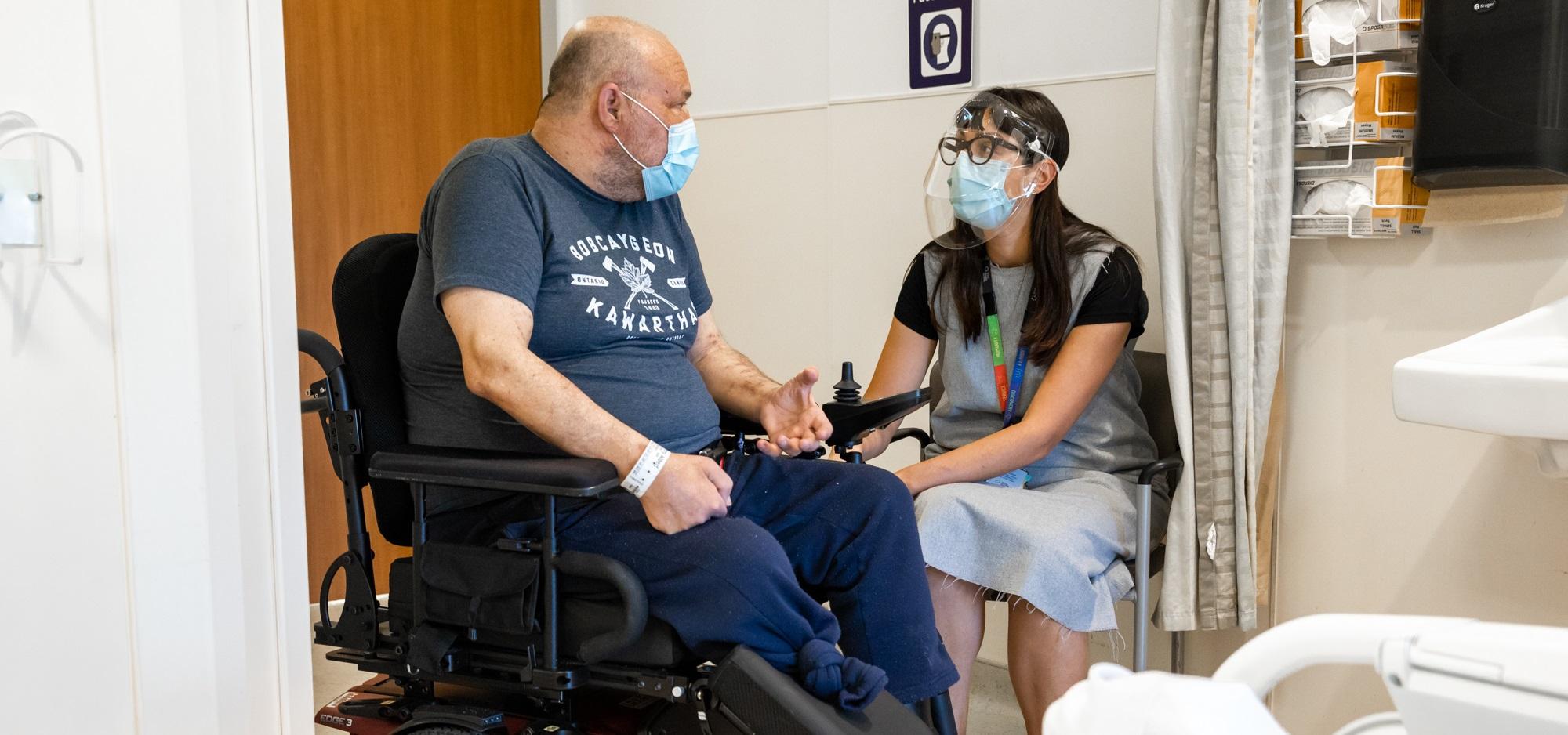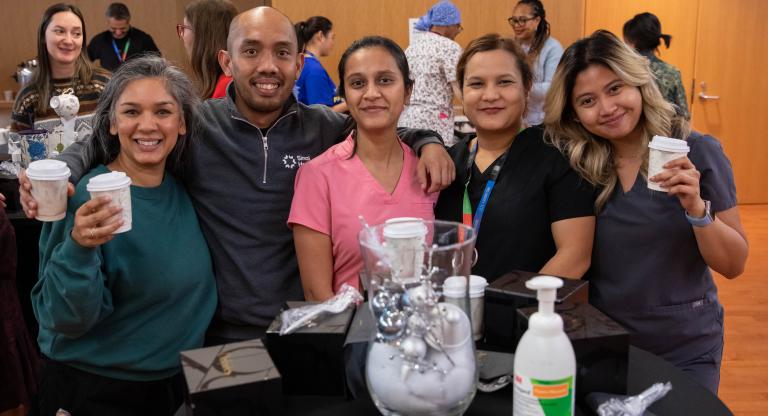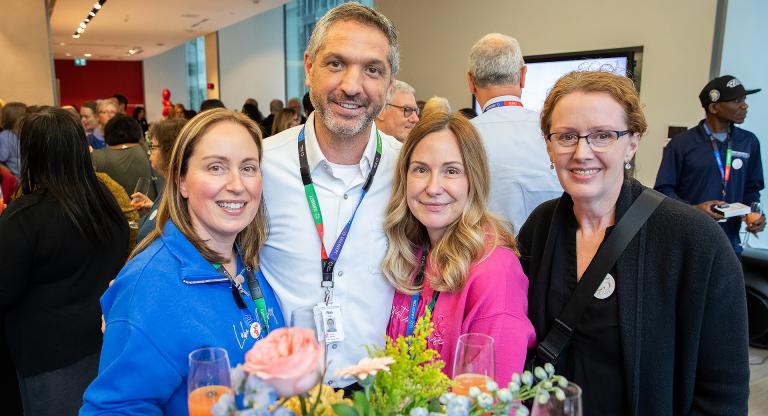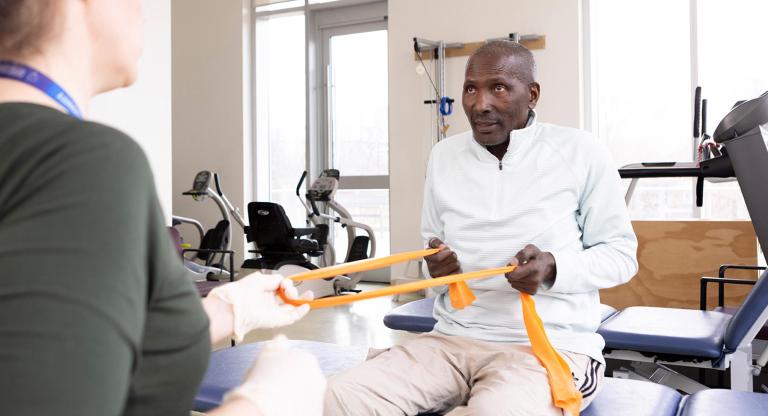Bridgepoint provides a lifeline for patients with complex health needs

Terry Nicholson is getting ready to move back into the community after a nine-month stay at Bridgepoint Active Healthcare’s Medical and Renal Care Unit. The program specializes in caring for patients with complex health needs, helping them to optimize their well-being and quality of life while living with chronic illnesses.
For Terry, the unit has been a lifeline because it offers rehabilitation for patients who are on peritoneal dialysis. It’s one of only two programs of its kind in Toronto. Dialysis is a treatment that does the work of removing waste from the blood when the kidneys are no longer working well.
Terry had been managing his dialysis treatments at home for a few years. But circumstances changed when he experienced a spinal stroke that caused paralysis below the waist and partial paralysis on the right side of his body. On Bridgepoint’s specialized unit Terry has been able to continue with peritoneal dialysis four times a day while also working on rehabilitation three times a week.
“I have made so much progress in my recovery at Bridgepoint,” says Terry. “The entire team has been so amazing in the support they’ve provided. They have become like family to me during a time when there have been some limits on visitors because of the pandemic. I couldn’t have asked for more.”
In addition to peritoneal dialysis for patients like Terry, the Medical and Renal Care Unit team provides care to patients with a variety of other complex care needs. Patients range in age from young adults all the way to mid-90s. Some are on the unit after a long stay in an acute care following a surgery or injury, others, like Terry, have had a change in their health, making it more challenging to manage their care at home.
Janett Black, Patient Care Manager on the Medical and Renal Care Unit says the team is highly skilled in caring for this patient population. “The care of medical and renal patients is very complex as these patients have multiple chronic illnesses and have different needs when it comes to nutrition, fluid intake, exercise, medications, maintenance of skin integrity and the emotional and psychological impact of living with chronic illnesses or disability,” she says. “Our team focuses on each patient’s individual needs and goals. We work collaboratively with patients and family caregivers to achieve the best care outcomes for each of our patients.”
Terry has worked with his care team on improving his physical strength. He’s also been prescribed a power wheelchair to meet his mobility needs. All of this is part of working towards his goal of living independently.
Jacqueline Batista, a Social Worker on the Medical and Renal Care Unit is helping to plan Terry’s transition back to the community. “Our whole team thinks about the patient holistically,” she says. “I picture what a typical day will look like when they leave here and whether there any gaps in terms of support. If there are gaps, we advocate for the patient to get the help that they need.”
After spending the last year in hospitals, Terry is looking forward to getting back to his life in the community. With his Bridgepoint care team behind him, he can be confident he will have the support he needs live independently.












